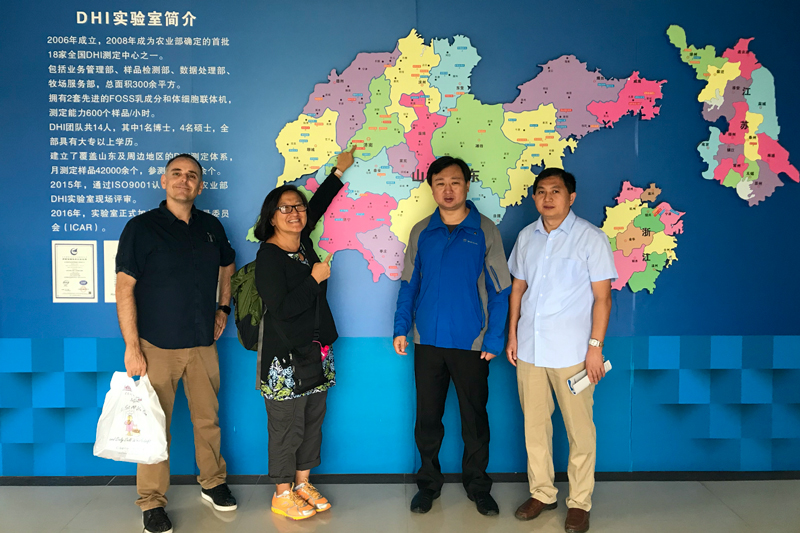 Dairy Center of Shandong Academy of Agricultural Sciences, China.
Dairy Center of Shandong Academy of Agricultural Sciences, China.
Tuberculosis (TB) is a major public health problem. The incidence of bovine-TB in China is not known. In most of the cases, animal-to-human transmission of Mycobacterium bovis occurs due to drinking contaminated milk or from being in close proximity to infected herds.
This project aims to study several low cost, point-of-care, rapid diagnostic tests for surveillance of cattle in the rural Shandong Province in China and to ultimately improve diagnosis of TB in human and animal and help to create a One Health approach to evaluation of zoonotic bovine TB disease.
Effective surveillance and diagnosis of bovine-TB is critical for prevention and eradication of this disease. The team believes that its proposed point-of-care diagnostic tests will enable rapid detection, reduce cost, and thus, significantly aid in preventing transmission of bovine-TB in animals and humans.
Ultimately, the project will validate rapid, field-based, easy-to-use, and inexpensive bovine-TB diagnostic tests for surveillance in the Shandong Province in China.
Shu-Hua Wang, MD, PharmD, MPH&TM, professor in the College of Medicine, is the principal investigator on the project. The Ohio State team also includes Joan Miquel Balada-Llasat, PhD, PharmD, professor in the College of Medicine, Luciana da Costa, PhD, DVM, associate professor in the College of Veterinary Medicine, and Jeff Pan, PhD, clinical research specialist in the College of Medicine.
To accomplish the validation of these rapid TB diagnostic tests, the Ohio State team partnered with Xuewen Li, PhD, professor at Shandong University, who is the project PI for China, Hongjun Yang, PhD, lead for TB and Brucellosis program at the Dairy Center of Shandong Academy of Agricultural Sciences, and Weixuan Wang, MD, director of Shandong Provincial Chest Hospital.